“We weren’t trying to better Iron Maiden. We were trying to better Michael Jackson!”: The metal fan’s guide to Def Leppard
From the NWOBHM to the world – how Def Leppard became one of the biggest British rock bands of all time
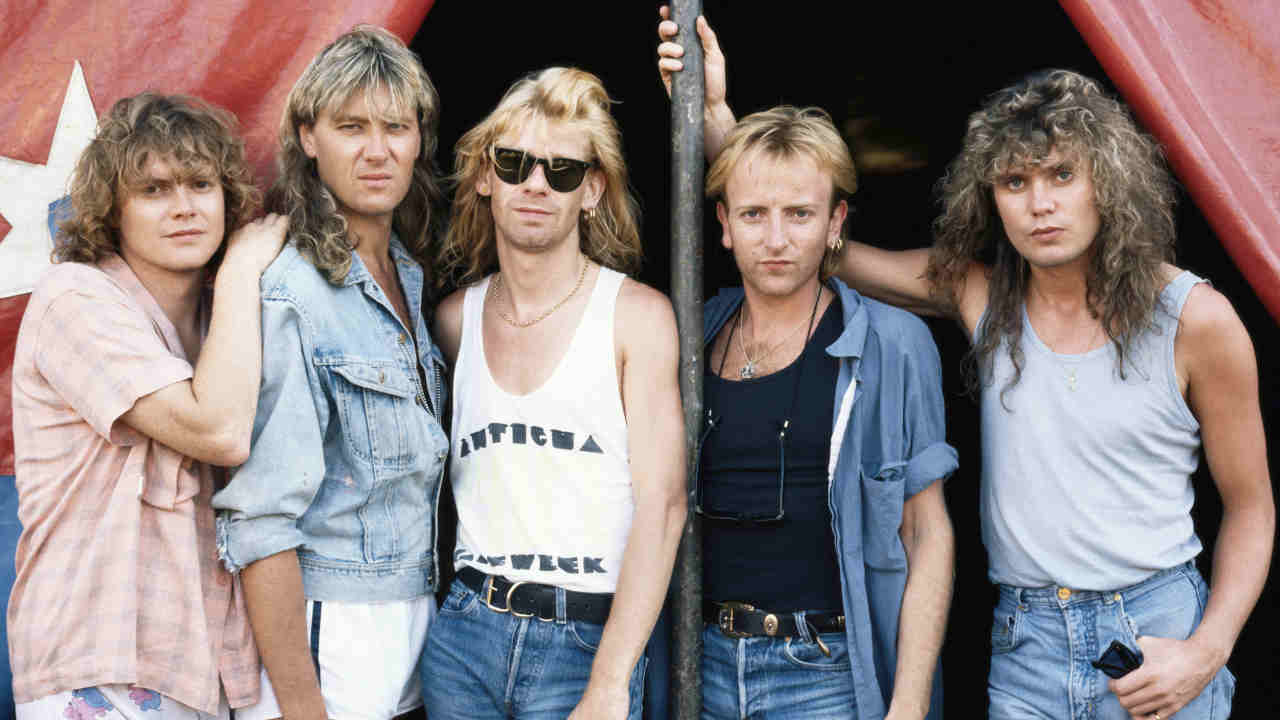
Iron Maiden weren’t the only superstar band to emerge from the NWOBHM era – Def Leppard emerged from their native Sheffield in the late 1970s to become one of the biggest British rock bands of the following decade on the back of blockbuster albums such as 1983’s Pyromania and 1987’s Hysteria. But their rise was marred by tragedy in the shape of the car accident in which drummer Rick Allen lost an arm and the death of guitarist Steve Clark in 1991. In 2011, singer Joe Elliott looked back on the highs and lows of his band’s stellar career.
When Def Leppard headlined the Download festival for the second time in three years in June 2011, they returned to the place where, 25 years earlier, they played the most important show of their entire career.
It was on August 16, 1986, when Donington Park was home to a one-day event known as Monsters Of Rock, that Leppard drummer Rick Allen made a comeback that few believed was possible. Rick had lost his left arm after crashing his Corvette sports car near the band’s hometown of Sheffield on New Year’s Eve, 1984. At the age of 21, it seemed certain that he would never play drums again. But after extensive physical rehabilitation, and with a specially designed, electronically enhanced drum kit, Rick found a way back.
When Def Leppard stepped out on to the Donington stage on that day in 1986, Rick was shaking with nerves. The band had prepared with five low-key club dates in Ireland, but at Donington, before an audience of 65,000, the stakes were so much higher. Backstage, singer Joe Elliott said he wouldn’t make any mention of Rick to the audience. But after a couple of songs, he felt he had to. The crowd responded with an ovation so loud, so emotionally charged, Rick was moved to tears.
As Joe recalls now: “That moment at Donington in 1986 was amazing. It’s something we’ll never forget. Rick had come close to dying in that accident. He nearly lost his other arm as well. It was horrendous. But he’d recovered and gone through this amazing transformation. And when I introduced Rick at Donington, the volume of the crowd was so powerful you could feel it. It was like a hairdryer, it almost blew your hair backwards. It was this huge wave of emotion, and it was overwhelming.”
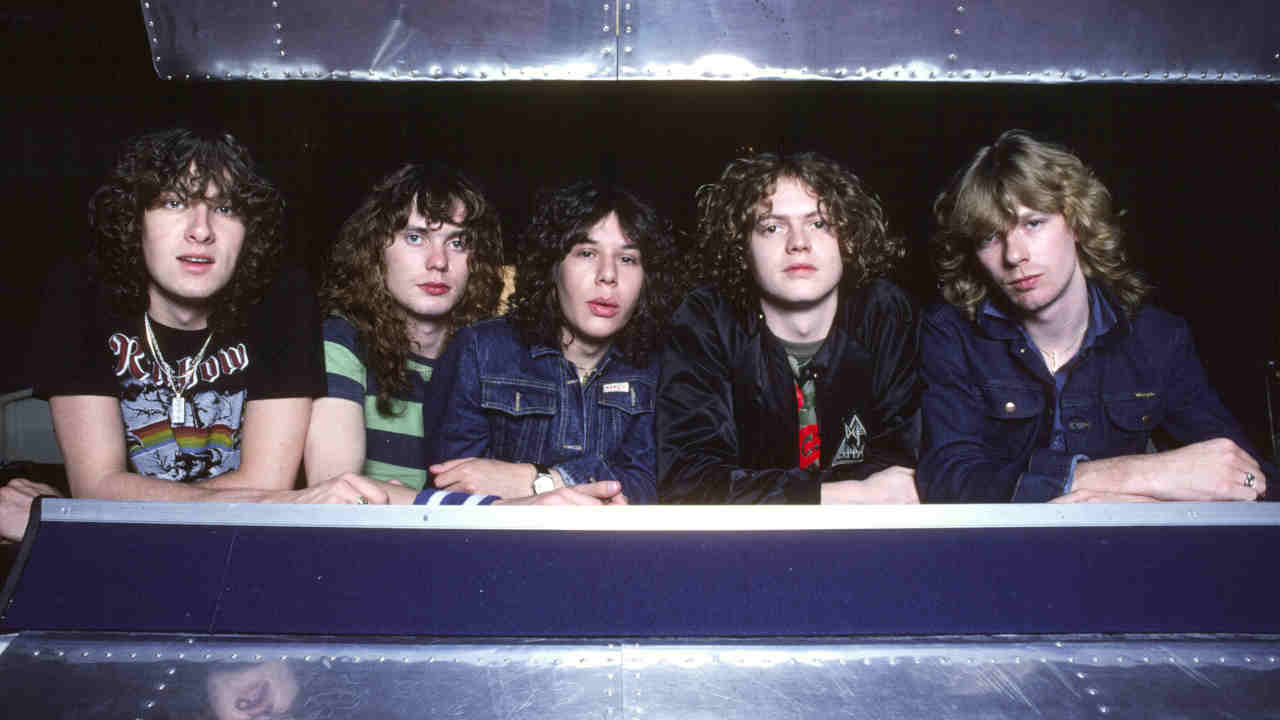
It was a similar story when Leppard returned to Donington for Download 2009. Again, Joe had decided not to introduce Rick to the audience. Again, he changed his mind. And again, the response of the huge crowd left the drummer in tears.
Sign up below to get the latest from Metal Hammer, plus exclusive special offers, direct to your inbox!
“Donington will always be a special place for Def Leppard,” Joe says. “And this year, we’ll kill the fucking place. We’re born to play gigs like this. You’re not around for 34 years, headlining a big festival like this, if you’re not a fucking good band!”
In a history that dates back to 1977, Def Leppard have experienced the highest highs and the lowest lows. On January 8, 1991, seven years after the accident that almost claimed the life of Rick, the band’s guitarist Steve Clark died following a long battle with alcoholism. But Steve did live to see a dream fulfilled. As Joe says: “We always wanted to the biggest rock’n’roll band in the world, and in the late 80s we made it.”
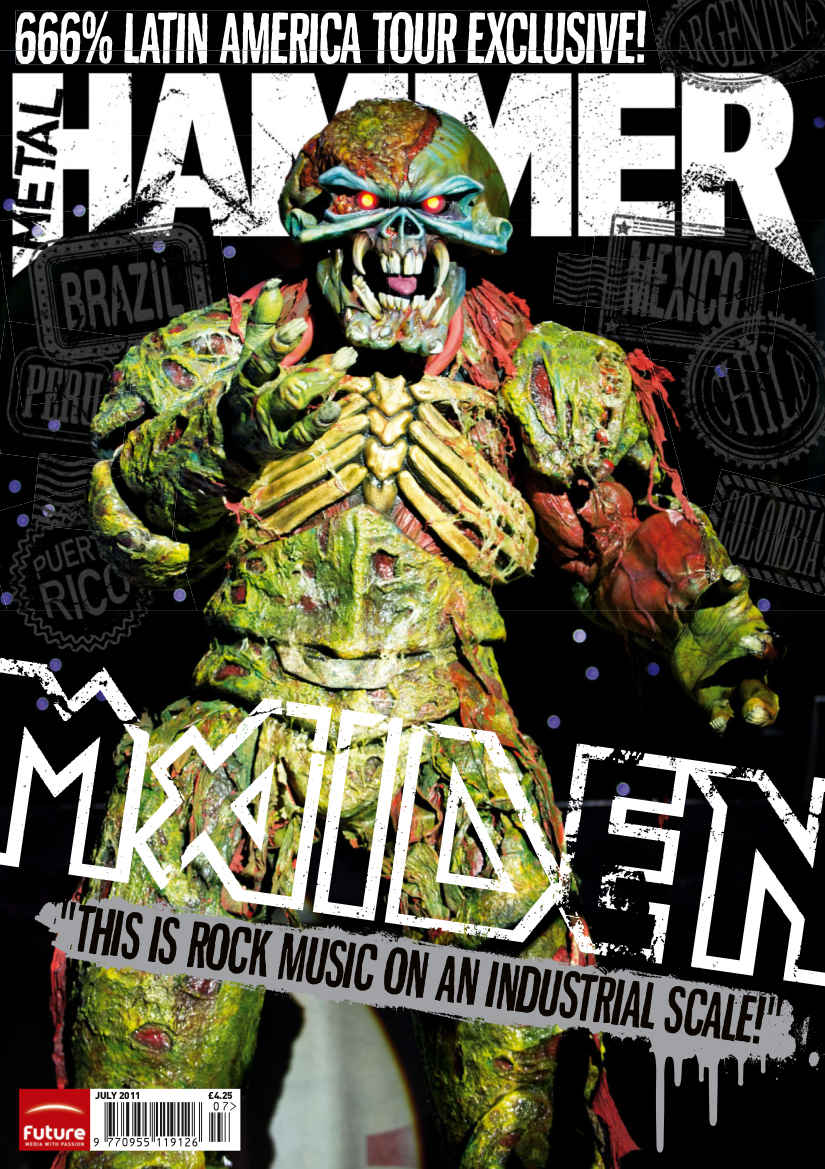
The statistics of Def Leppard’s career are astonishing. They have sold over 75 million albums worldwide, and they are one of only five rock groups to have sold ten million copies of two original studio albums in America – a feat they achieved with 1983’s Pyromania and 1987’s Hysteria, placing them in the elite company of The Beatles, Led Zeppelin, Pink Floyd and Van Halen. Hysteria alone has sold more than 20 million copies, ranking it among the 50 biggest-selling albums of all time. But back in 1978, when the young Def Leppard made their first professional recording, they barely had a pot to piss in.
Long before they spent £2 million making the Hysteria album, Leppard cut their debut EP at Fairview studios in Hull with a budget of £150, borrowed from Joe’s father. “The studio bill came to £148.50,” Joe says, “so we had enough change for a bag of chips on our return to Sheffield!” Joe’s mum also helped out with the cost cutting. She glued together the EP’s cardboard sleeves – all 1,000 of them.
Titled The Def Leppard EP, and later known by its lead track Getcha Rocks Off, it was recorded with stand-in drummer Frank Noon (a replacement for original member Tony Kenning) along- side Joe, Steve, bassist Rick ‘Sav’ Savage and guitarist Pete Willis. The EP was released in January 1979 on the band’s own independent label, which they named Bludgeon Riffola after a phrase from a vicious review of an early Leppard show. All 1,000 copies sold out so quickly that a second pressing of 15,000 was hastily produced. Within a few months, Leppard were at the forefront of a grassroots movement christened by Sounds writer Geoff Barton as the New Wave Of British Heavy Metal.
As Joe states, Leppard were never an out-and-out metal band like Iron Maiden, Diamond Head, Tygers Of Pan Tang, Saxon and other stars of the NWOBHM. Leppard’s primary influences were AC/DC, Thin Lizzy, Led Zeppelin, Queen and 70s glam rock. “We were doing our own thing,” Joe says. “We didn’t jump on board the NWOBHM – we got sucked in! But the buzz around it certainly helped us.”
By August 1979, Leppard had signed with AC/DC manager Peter Mensch and with major label Mercury/Vertigo. Rick, who’d joined the band in December ’78, was still only 15 years old: his parents had to sign the contracts on his behalf. When Rick celebrated his 16th birthday on November 1, 1979, Leppard played at London’s Hammersmith Odeon as support to AC/DC.
The band then headed to John Lennon’s former home, Tittenhurst Park, to record their first album, On Through The Night, with Judas Priest producer ‘Colonel’ Tom Allom. As Joe says, Allom “really captured the energy of the band.” And in contrast to riff-heavy songs such as Wasted and Rock Brigade, Leppard also pushed the envelope with the more experimental, Rush-inspired epic Overture, which Joe describes as “somewhere off in wacky world”. But there was one song on the album that aroused controversy, a pop-oriented single unapologetically titled Hello America. And on March 1, 1980, two weeks before the album was released, Geoff Barton suggested that Def Leppard had sold out in a Sounds article headlined: HAS THE LEPPARD CHANGED ITS SPOTS?
On Through The Night hit number 15 on the UK chart, but as Joe admits, “Geoff’s negativity hurt us.” When Leppard appeared at the Reading Festival in August 1980, they were pelted with missiles from a hostile crowd. But Leppard came back stronger with a second album that Geoff proclaimed “brilliant”, an album on which Leppard teamed up with the producer who’d transform their sound and turn them into a multi-million selling band.
Robert John ‘Mutt’ Lange was a perfect fit for Def Leppard. He’d produced pop hits, including The Boomtown Rats’ number one Rat Trap. But more importantly, he’d also produced AC/DC’s two big breakthrough albums: 1979’s Highway To Hell, their first million-seller, and 1980’s Back In Black, the band’s triumphant comeback, recorded with new singer Brian Johnson after the death of his predecessor Bon Scott.
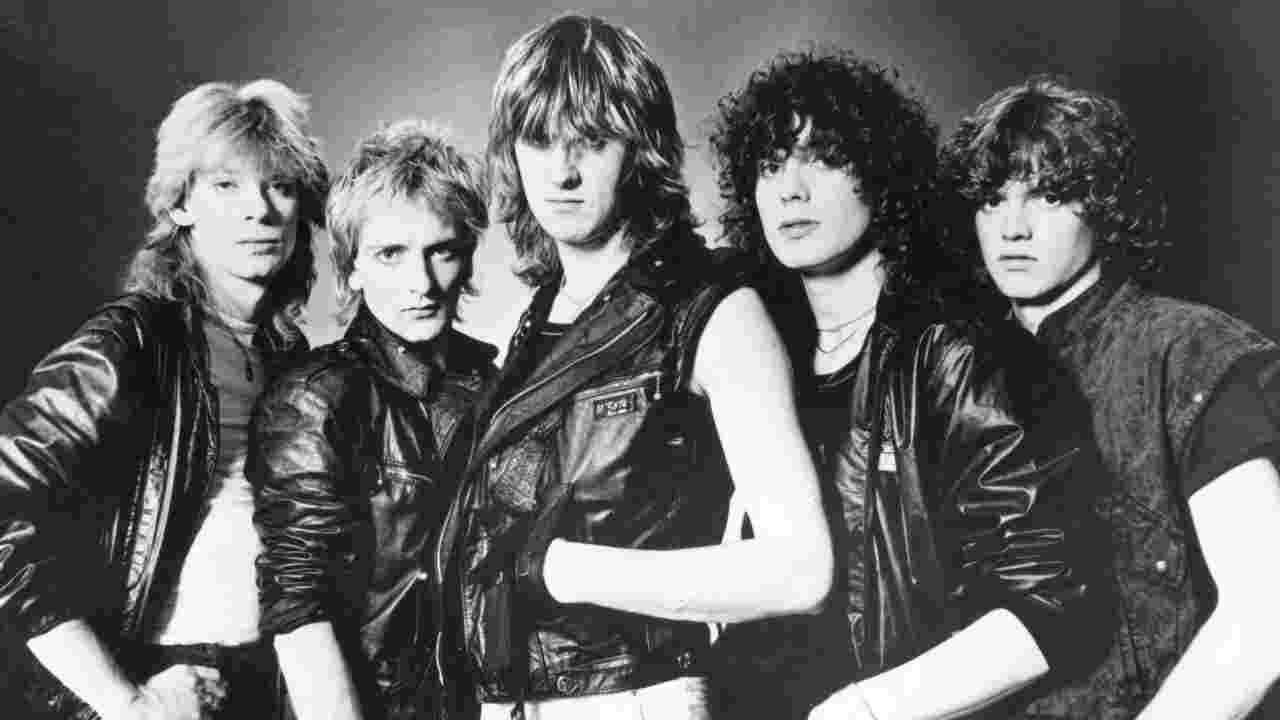
Recorded at Battery Studios in London, where AC/DC had cut Highway To Hell, Leppard’s second album High ’N’ Dry was a huge leap forward from their debut. “High ’N’ Dry is certainly the most heavy metal record Def Leppard’s ever made,” Joe says. “But it’s also melodic. It’s got the big vocal harmonies.” With the power ballad Bringin’ On The Heartbreak achieving heavy rotation on the nascent MTV channel, High ’N’ Dry sold 500,000 copies in the US. And with the next album, Pyromania, the band and their producer were aiming even higher. “Mutt saw in us a band that he could manipulate, production-wise,” Joe explains. “And we saw in Mutt a producer who was a step above everybody.”
During the making of Pyromania, in June 1982, Pete Willis was fired. A heavy drinker, Pete had become a liability. Says Joe: “Steve Clark was a drinker but at least Steve was a nice guy. Pete wasn’t. One day in the studio Pete was so bollocksed he was actually wearing the guitar backwards – strings inside, strumming the back of the guitar! He had to go.” The album was completed with a new guitarist, Phil Collen, formerly of NWOBHM-era glam rockers Girl.
Released on January 20, 1983, Pyromania was greeted with rave reviews. Rolling Stone magazine, always sniffy about hard rock music, awarded the album four out of five stars. Future Metal Hammer writer Malcolm Dome declared it “the birth of a legend.” As Joe says: “We always thought bigger than everybody else, and we busted our balls to make something that nobody had ever done. We wanted to update the English sound of The Who and Zeppelin. We had that hypnotic drum sound that the Human League had, and stuck the Queen and AC/DC stuff over it. We’d made this amazing record and we thought, if people don’t get it, there’s something wrong with them!”
They needn’t have worried. By August 1983, Pyromania was selling 100,000 copies a day in America. “It was magical,” Joe says. “Fucking unbelievable! We were selling concert tickets faster than Zeppelin did. Our tour started at the Marquee club in front of a few hundred people, and ended with us headlining at the Jack Murphy Stadium in San Diego in front of 55,000!”
Pyromania would sell over six million copies before the end of that year. Only Michael Jackson’s Thriller kept it from topping the US chart. But with their fourth album, Hysteria, Leppard would hit number one in the USA, UK and throughout the world.
When the band began recording Hysteria, it was without Mutt Lange, who was exhausted after working on seven major albums back to back. But Leppard’s second choice producer – Jim Steinman, the man who wrote Meat Loaf’s Bat Out Of Hell – didn’t work out. So Mutt returned – with a firm agenda. As Joe recalls, “Mutt said to us, ‘Michael Jackson kept you off the top because he had six singles off his album. So let’s make an album with seven hit singles on it!’ That was our game plan. We weren’t trying to better an Iron Maiden record. We were trying to better a Michael Jackson album that sold 37 million copies!”
Incredibly, it almost worked. Leppard couldn’t match Thriller. Nobody could – it’s still the biggest-selling album of all time. But with Hysteria, Leppard achieved their dream of being the biggest rock’n’roll band in the world. And although the album’s first single, Women, bombed, the other six all hit the US top 20, with Love Bites reaching number one, and Pour Some Sugar On Me hitting two. According to Joe, the latter track, a rap/rock hybrid, was written specifically for strippers to perform to.
The success of Hysteria was all the more remarkable given what Rick Allen had been through during its making. As Joe recalls: “After Rick lost his arm he’d had to re-learn everything he ever knew. Not just playing drums – everything. Tying his shoelaces with one hand, brushing his teeth, eating a meal. Think about it. He even had to learn to walk again. When you lose an arm that’s a lot of weight to lose. The first few times he got out of bed, he used to fall over. To get his balance, he had to start compensating by shoving his shoulder this way and that. It was a hard time for Rick and for all of us. But it was Sav who said, ‘Shall we sit around writing the death knell for the band while Rick’s in hospital, or shall we try to write Bohemian Rhapsody to cheer him up?’ And Sav was right. It’s all well and good being sympathetic, but at some point you just have to get on with it. And that’s exactly what Rick said to us.”
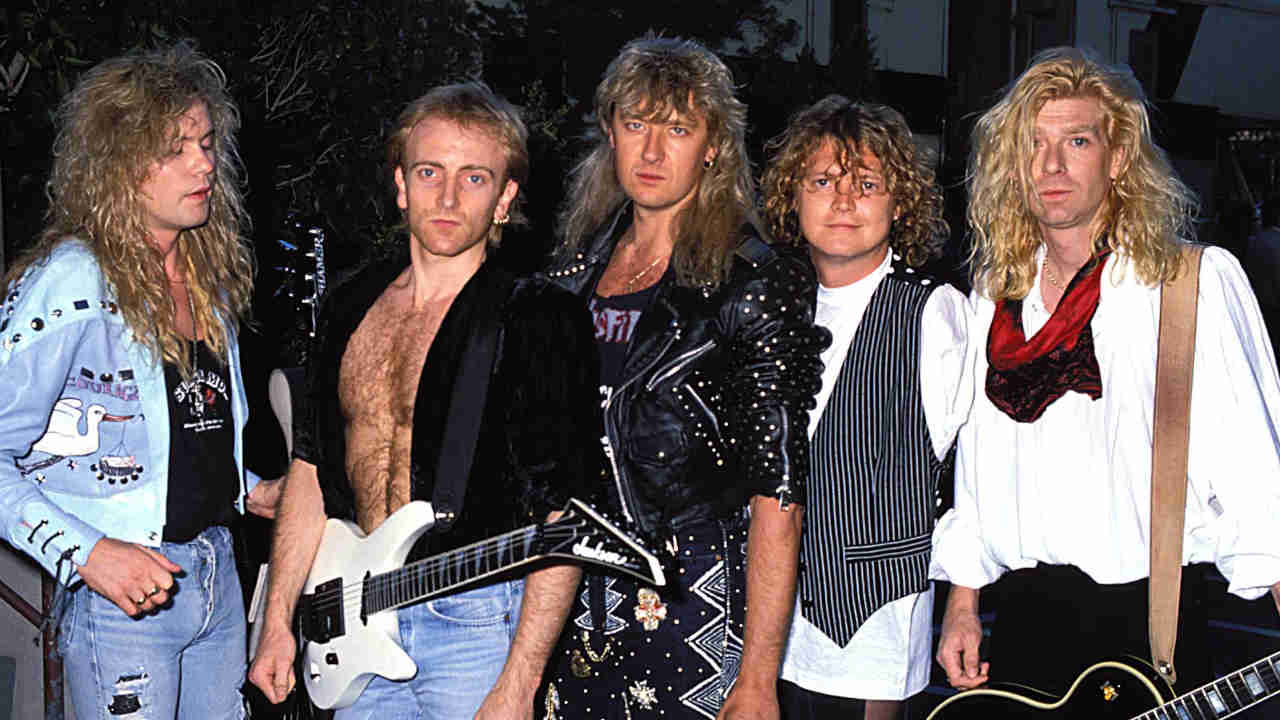
Hysteria made Def Leppard a household name all across the world. But before the follow-up album was recorded, the band suffered another devastating blow with the death of Steve Clark. “Steve was a lovely guy and a great guitar player, but he was a casualty, there’s no doubt,” Joe admits. “When Rick had his accident it was totally up to him whether he was going to be in the band or not. With Steve, we gave him six months off for rehab, and it didn’t work. He chose to go to the pub and drink himself to death. When he died it was horrible, but it certainly wasn’t a shock. A shock is when your manager says your drummer’s just crashed his car and lost his arm.”
Leppard recorded their fifth album, Adrenalize, as a four-piece, with Phil Collen playing all guitars. Mutt Lange co-wrote nine of the album’s ten tracks, but as he was busy producing a Bryan Adams album, Waking Up The Neighbours, Leppard chose to produce Adrenalize with their trusted engineer Mike Shipley. Released in 1992, the year in which Nirvana’s Nevermind topped the US chart, Adrenalize sold seven million copies and went to number one in 22 countries. As Joe says, “The grunge thing didn’t really affect us then.” But like so many of the big 80s rock acts, Leppard were marginalised in the era of alternative rock and nu-metal. “We never considered splitting, though,” Joe insists. “After what this band went through with Rick and Steve, we were never going to just give up.”
With guitarist Vivian Campbell, ex-Dio and Whitesnake, replacing Steve Clark in 1992, Leppard have retained a solid line-up since then, releasing a string of albums helped them passing pretty much every passing trend since. As Joe says, “The story of Def Leppard is not just a musical thing. We did it for Rick. We tried to do it for Steve. We’ve always been humans first and musicians second. And after all that’s happened, we’re still here and people still want to see us. As long as they keep coming, we’ll keep playing.”
Originally published in Metal Hammer issue 219, June 2011
Freelance writer for Classic Rock since 2005, Paul Elliott has worked for leading music titles since 1985, including Sounds, Kerrang!, MOJO and Q. He is the author of several books including the first biography of Guns N’ Roses and the autobiography of bodyguard-to-the-stars Danny Francis. He has written liner notes for classic album reissues by artists such as Def Leppard, Thin Lizzy and Kiss, and currently works as content editor for Total Guitar. He lives in Bath - of which David Coverdale recently said: “How very Roman of you!”


